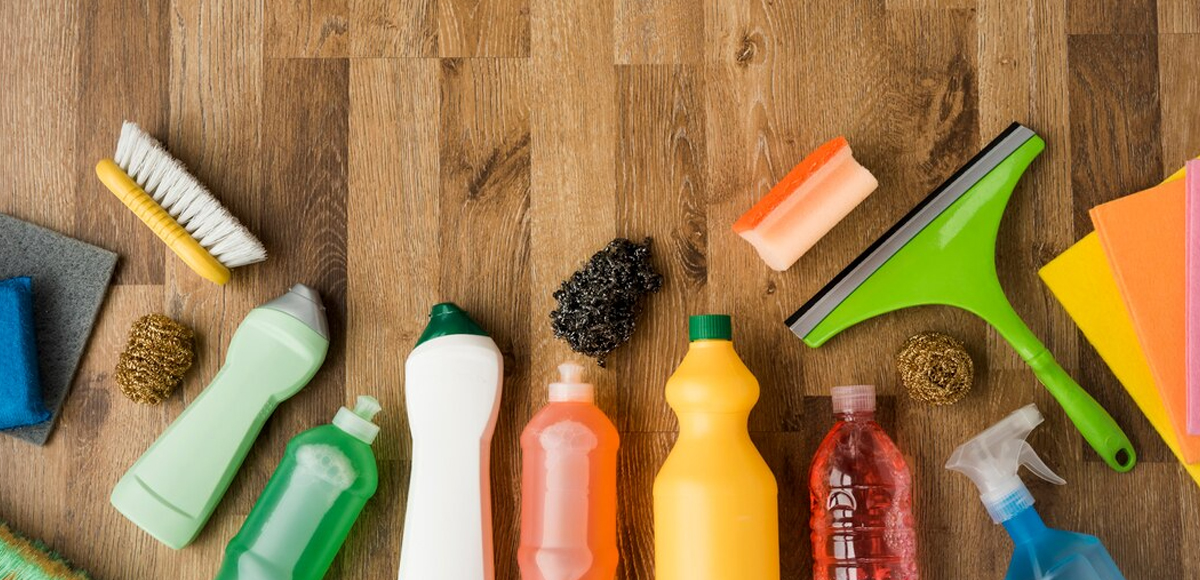
5 Carpet Cleaning Products to Avoid Using
There are plenty of great carpet cleaning products available on the market today, ranging from heavy-duty stain removing solutions to enzymatic “bio” cleaners that are a more natural choice. Unfortunately, cleaning products often also contain chemicals that are hazardous when improperly used.
If you err more on the side of caution when it comes to chemicals in the home, it may be wise to have a look at the following products and chemicals before purchasing a product for your carpet (which you’re inevitably going to breathe in at some point).
Deodorising Powders
In the best case, deodorising powders are able to mask the foul odour of pet accidents on your carpet or that lasagne from two weeks ago. I think we can all agree that personal fragranced deodorant is no substitute for a nice shower, so why treat your carpet this way?
Avoid using deodorising powders altogether and instead purchase a product (or make a homemade one yourself) that deals with the source of the odour directly. When the source of the odour’s gone, you won’t have to use any masking fragrances since it’s gone for good.
Perchloroethylene “PERC”
PERC is a known neurotoxin common in many household carpet cleaning products. It’s a possible carcinogen as well. Avoid purchasing cleaning products containing this chemical and stick with something more natural instead.
One of the most common sources of PERC is from dry cleaning, and it’s been claimed that residential flat residents above dry cleaners have shown symptoms such as dizziness from inhalation of PERC.
Quarternary Ammonium Compounds, or “QUATS”
Many so-called ‘antibacterial’ household cleaners can contain Quats, an antimicrobial that can lead to irritated skin or respiratory problems such as bronchitis or asthma. The antimicrobial part of Quats is worrisome, as well: use of products containing Quats can be conducive to the growth of antibiotic-resistant bacteria.
Quite often, products with Quats are used to soften fabrics and can be used on carpets as well (though they shouldn’t). Vinegar can perform the same function without the health consequences, so long as you don’t mind the smell for a couple of hours.
2-Butoxyethanol
This one can be hard to spot, since manufacturers don’t need to list 2-butoxyethanol on the product label. Products containing this chemical are known as glycol ethers, which can cause severe respiratory and organ problems when inhaled.
You’ll often find that glass cleaners and many all-purpose cleaning products contain 2-butoxyethanol. The ‘sweet’ smell that many of these products emit is often 2-butoxyethanol. Once again, vinegar can perform many of the cleaning functions of these chemicals without the side effects.
Triclosan
Triclosan is another common chemical that is known to be carcinogenic. You’ll often find triclosan in liquid dishwashing detergents, hand sanitiser (unless it’s alcohol-based), and hand soaps that are listed as ‘antibacterial.’
Part of the problem is that this chemical creates drug-resistant bacteria, which is something most of us would probably want to avoid. One of the big reasons to avoid triclosan, however, is that triclosan is common in rivers and streams due to its prevalence in household cleaners. Instead of poisoning our water source and the wildlife in our rivers and streams, switch to more natural cleaning products instead.
Melbourne Carpet Drying
Clean your carpets professionally with Melbourne Carpet Drying. Our carpet cleaning experts specialise in water damage remediation and professional carpet cleaning. Contact us today to learn more about our services.
 Skip to content
Skip to content

